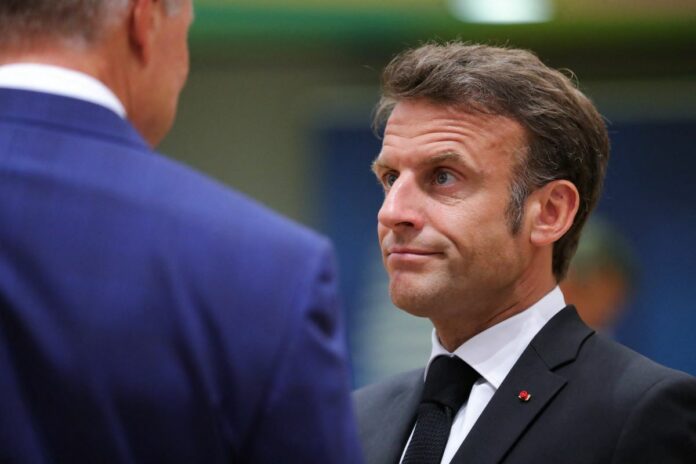The “100 days” are coming to an end. At the beginning of April 2023, Emmanuel Macron had set himself three months to turn the page on pensions. He then chose July 14 as the balance sheet date. However, in the current context of protest since the tragic death of Nahel M. on June 27, the French are impatiently awaiting a change in the ranks of the executive.
Rumors are growing and some ministers already know they are in the hot seat. Pending a decision from the Head of State, they are “be careful not to make mistakes in the money time [the moment where everything is played]”, “everyone is on the defensive”, explains a former secretary of state to franceinfo. So, the weakened ministers try by all means to save their place.
To convince the President of the Republic to keep them, some ministers resort to the strategy of the good student to give the impression to the Head of State that the job is well done. “There is a real continuity, no stoppage, no paralysis. On the contrary, it intensifies”, advances for example the entourage of Jean-Christophe Combe, Minister of Solidarity, potentially on the departure, to franceinfo. Moreover, in this context of uncertainty, the ministers no longer dare to oppose Elisabeth Borne. Thus, a ministerial adviser recognizes that “we are more careful and we say no to Matignon much less easily.”
The weakened minister must make people forget his lack of visibility. For this, it is necessary to emphasize the completed work, not to refuse anything, but also to present oneself as essential. Some people think they are safe because they are in charge of major reforms. Yet, according to an adviser, this does not mean guaranteed longevity: “Someone can take over very quickly”, whatever the subject matter. But then, how do you secure the president’s good graces? Other ministers have chosen the strategy of proximity.
“There is human work to be done with the Prime Minister and the President of the Republic, because you have to please both”, explains a former member of the executive to franceinfo. So, in the context of an eminent reshuffle, the ministers are increasing their travels in the company of Emmanuel Macron.
But this strategy can be ineffective. “Christophe Béchu has stuck to the president’s coattails lately, when his presence was not relevant for all trips”, criticizes a ministerial adviser. “You have to measure your effort, otherwise it quickly becomes drunk,” adds a former secretary of state. “When the Head of State decides to change a minister, it’s not because he hasn’t seen him enough in the last 15 days, it’s because during multiple meetings, we have seen that ‘He didn’t know his files, or he didn’t have an idea…’, concludes another ministerial adviser. In order to make people forget past mistakes, some ministers then tried to occupy more of the media scene.
“Ministers who feel more fragile try to have a stronger presence in the media or to exchange more with parliamentarians”, explains Stéphane Travert, Minister of Agriculture during Emmanuel Macron’s first term, to our colleagues. from franceinfo. “Some do more media, like Pap Ndiaye, who speaks more often, especially in the written press. The Minister Delegate in charge of Cities and Housing, Olivier Klein, is also more active, although he has not much happened for a year. There, he moves, “adds a former minister. If Olivier Klein is more solicited in the context of urban protest, other ministers are not as publicized.
Worse, multiplying media interventions can be dangerous. “It can be counterproductive: there is a risk of tripping over the carpet by making a mistake, precisely because you haven’t done enough media before… It’s a bit late to be to show !” analyzes a former ministerial adviser for franceinfo. “And you won’t even have time to catch up,” concludes another adviser.















